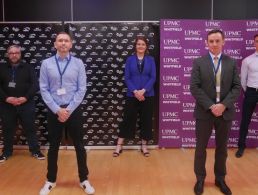Flexibility is the future of work. But at this crucial tipping point our next steps will determine how work will evolve for the next generation, writes Elaine Burke.
In our years looking at possibilities and predictions for the future of work, a common theme has always been increased flexibility.
True to its very definition, flexible working comes in many forms. There’s remote working and fluid schedules, blended teams working across geographic divides, the adoption of collaborative software and online communication tools, and even rethinking of the working day and how we measure productivity.
With the digital tools we have at our disposal and the demands we have in our daily lives, the idea of all work being tied to a specific schedule and location no longer makes sense. Even as we are shuffling toward a significant economic downturn likely to affect us all, I’ve heard from multiple people turning down job offers that had strict demands on time and location.
Some companies have fought to suppress growing expectations from employees and candidates, but the Covid-19 pandemic has blown their cover and shown us all just how much we can do while working more flexibly.
‘Trust – already an essential ingredient in any team – will have to be even more carefully nurtured in the new era of flexibility’
Why the reservations from the perspective of company leaders? Perhaps because the biggest leap to take into this future of work is a dramatic shift in how we think of leadership. Presence can be helpful to leaders, to the extent of being a crutch to lean on where other tools of management and motivation are absent.
But leading teams in dispersed locations across multiple timelines requires a level of trust that runs up against this model of leadership. Just as employees often don’t respond well to managers breathing down their neck to oversee work being done in-office, the modern online worker will not appreciate managers who overly rely on surveillance tools to track their movements and activities. Trust – already an essential ingredient in any team – will have to be even more carefully nurtured in the new era of flexibility.
Inputs v outputs
And in this new era we see bright opportunities ahead. The chance to build work around life and not the other way around. The panacea of work-life balance.
Or not. The bleed into life could see work take over as it has already done in so many households that are now playing host to the workplace.
To truly enjoy the benefits of flexible working, employees – empowered by a sense of trust – will need the confidence to know when they can and should switch off. This, for many, will be another cognitive leap: to acknowledge that you can actually work so hard as to become inefficient.
Many major brands have announced extended and even infinite work-from-home policies amid the current crisis, and Siemens went so far as to redefine expectations in its policy. With a promise from deputy CEO and labour director Roland Busch to focus on “outcomes rather than on time spent at the office”, Siemens sets the example all businesses will need to follow. It’s time to measure teams’ progress on the work they produce, not the arbitrary amount of hours they put in.
As Steve Glaveski, entrepreneur and advocate of a six-hour workday, put it recently to The Irish Times: “By cultivating a structure where people can design their own days, based on what works best for them, we can help our people do more in less time, which benefits the organisation.”
It comes back to the trust and confidence required to reach that point. “If you have people on-board who are aligned with the mission of the organisation – motivated people who have the resources that they need to succeed – more often than not they are going to get things done,” said Glaveski.
Inclusion v division
Being open to new ways of working can also bring greater inclusion to workplaces. In the Financial Times, journalist Kesewa Hennessy tentatively dubbed 2020 the “year of the introvert” and wrote how “an introvert-friendly etiquette has evolved” with the recent switch to working from home as the norm.
For the many people who don’t fit the archetype of a successful modern worker, the opportunities presented by flexibility can help level the playing field. This shift can also, however, increase divisions.
Without careful management, teams separated by distance and time can experience heightened inequalities, especially if some have more direct contact and visibility with leadership than others.
Flexible working could empower people with varying mental and physical health needs, but it can also introduce health issues that employers must take responsibility for. The oft-maligned role of workplace health and safety will have huge challenges to overcome in the future of work with an expansive set of variables to consider.
Utopia v dystopia
This is the flexible future of work that workers have demanded. It can move towards a utopian vision of perfect balance, harmony and increased employee satisfaction, or it can take a dystopian twist and lead to disillusioned workers under constant surveillance, isolated and in ill health. Which direction we take all depends on how we start responding to these issues now.
We are shedding the old 20th-century models of work and emerging with new ways to work that will come with new challenges. We have finally taken the first steps into a new age and the future of work will be shaped by our next moves.
Want stories like this and more direct to your inbox? Sign up for Tech Trends, Silicon Republic’s weekly digest of need-to-know tech news.




